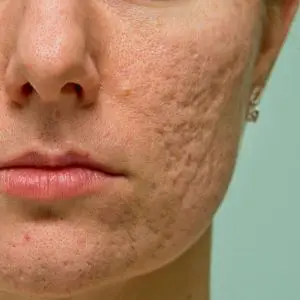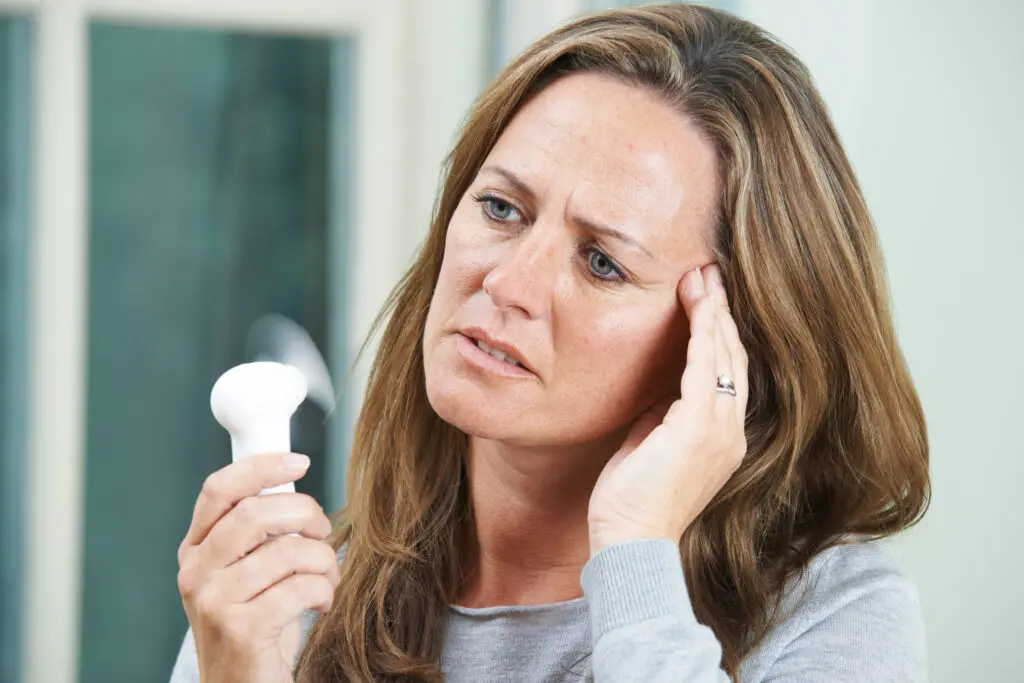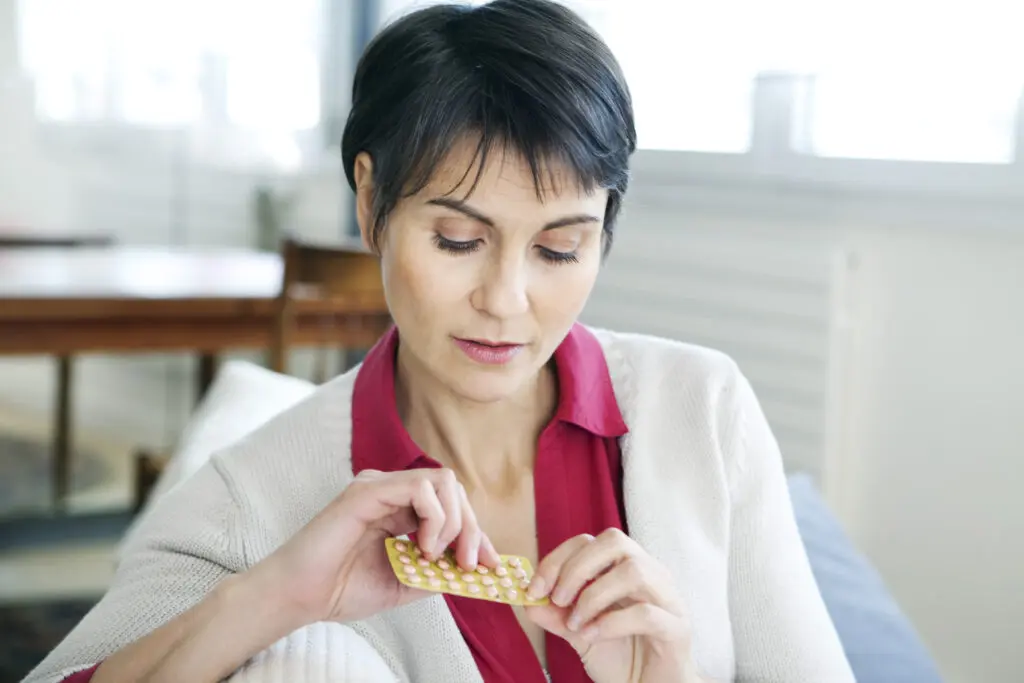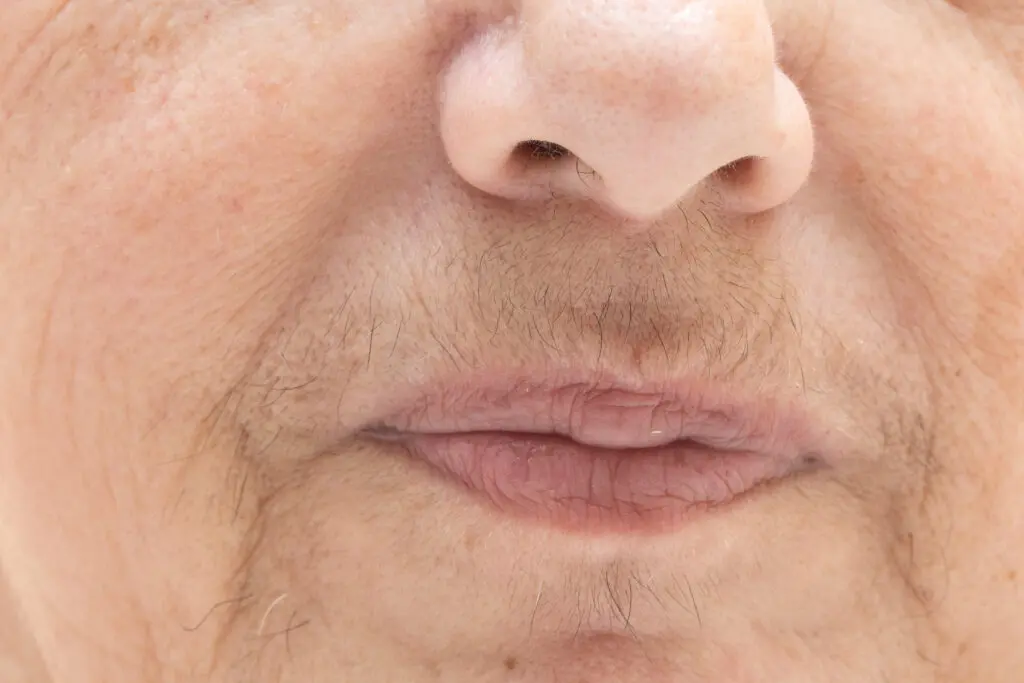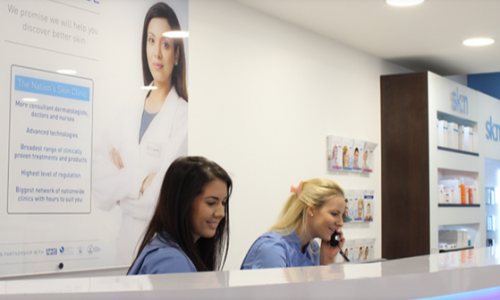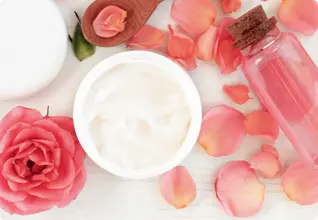From Acne to Menopause: How Hormones Affect Your Skin
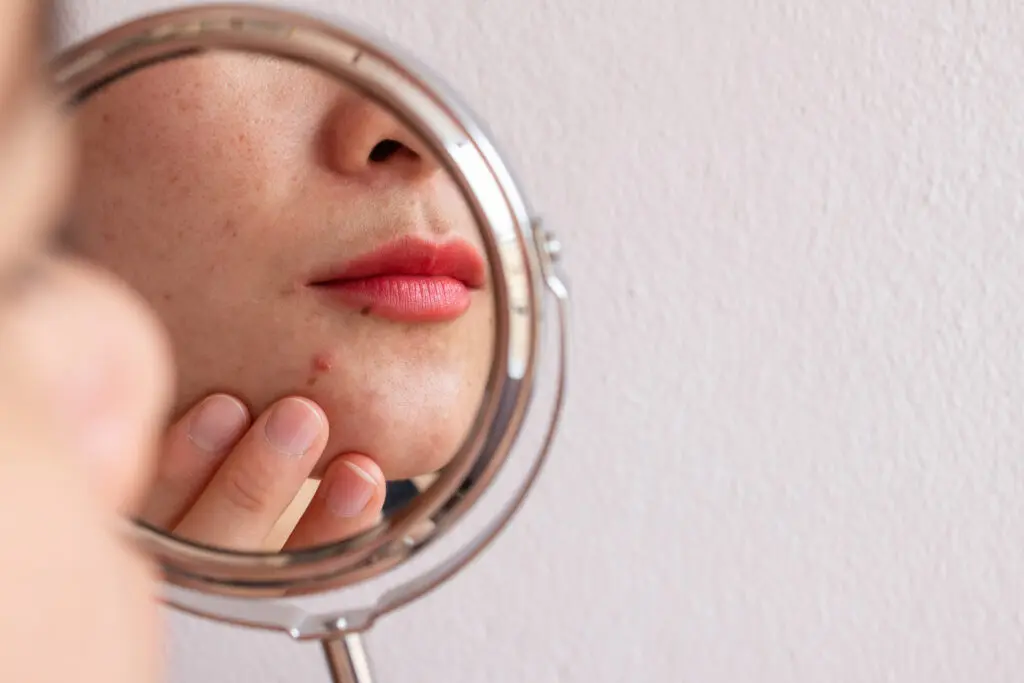
Medically approved by Dr Aiza Jamil
It is widely known that hormones can have a major impact on our skin. However, did you know that hormones can play a role in our skin health throughout our lifetime? Fluctuating hormone levels can result in skin concerns during periods in a woman’s lifetime such as menstruation, pregnancy, and menopause. Knowing what skin changes to expect will help you prepare for and treat them if necessary. First, let’s address the hormones that have the potential to affect the health of our skin.
The culprits (hormones)
- Oestrogen helps control the menstrual cycle and enable ovulation, oestrogen also helps stimulate collagen, elastin, and hyaluronic acid production which helps the skin to stay plump and firm.
- Estrogen helps to stimulate collagen, elastin, and hyaluronic acid production which helps the skin to stay plump and firm.
- Progesterone stimulates the production of sebum or the oil glands in the skin, and too much can lead to a build-up of oil and breakouts. It can also cause the skin to swell, and compress the look of pores.
- Androgens (for example testosterone), typically present during menstruation, work similarly to progesterone by activating the sebaceous glands to produce oil. While typically produced at a higher level in males, increased production of androgens stimulates the sebaceous glands (oil-producing) that can develop into acne.
What hormones cause acne?
Hormones: Androgens
Conditions or symptoms: acne during puberty, adult acne, PCOS-related acne
Treatments at sk:n: Chemical peels
Salicylic acid is a key ingredient in treatments and skincare when treating acne. It is a BHA (beta-hydroxy acid) which means it helps reduce inflammation, bacteria and the productions of sebum. Be mindful that it is not safe if you have an aspirin allergy. sk:n clinics offer various chemicals peels we may recommend for acne, such as Enerpeel salicylic or pyruvic, Epionce peel, or a Medik8 Clarity peel.
What skincare can I use?
Similarly with skincare, you should look for key ingredients such as salicylic or glycolic acid, and retinol (vitamin A – although you are advised not to use retinol while you are pregnant or trying to conceive). Acne sufferers are advised to take care with strong vitamin C skincare as they can aggravate the skin. The Obagi Nu-Derm System is also great for acne clients to help clear their skin.
How menstruation hormones affect your skin
Hormones: Androgens, progesterone and oestrogen
Conditions or symptoms: Monthly cycles can cause acne and breakouts
Treatments at sk:n: Skin treatments including chemical peels and Hydrafacial. Hydrafacial should be avoided if you have moderate to severe acne, however it is great for congested skin.
What skincare can I use?
Hydrating products that drench your skin in moisture! Also make sure to use an appropriate retinol in your routine, and an exfoliating cleanser to slough away dead skin cells and reveal a fresh glow.
The impact of PCOS hormones on your skin
Hormones: Androgens
Conditions or symptoms: The hormonal imbalances in those with PCOS affects how the ovaries work, so females with higher levels of androgens (e.g. testosterone) may develop excess hair and can also result in acne and dark patches.
Treatments at sk:n: Acne treatments and laser hair removal.
Excess hair growth, caused by PCOS or hirsuitism can be easily and safely treated all over the body and face with laser hair removal. We recommend 8-12 treatments, and then follow with top-up sessions to keep the hair growth at bay due to hormonal imbalances.
If you’re experiencing acne or dark patches and pigmentation as a result of PCOS, you can book a consultation with one of our skin specialists.
What skincare can I use?
We would create a bespoke routine for you during your consultation.
Peri-menopause and menopause hormones and your skin
Hormones: Oestrogen, androgens
Conditions or symptoms: Loss of oestrogen plays a role in the skin’s restorative process, which may result in dryness, thinning skin and a loss of elasticity and plumpness. Your androgen levels rise which may result in breakouts, acne and blocked pores.
Treatments at sk:n: Injectables and advanced skin treatments.
Anti-ageing injectables are a great solution for those noticing the first signs of ageing combined with dry, dull skin and uneven texture. HArmonyCa® is a new advanced injectable treatment that not only restores facial volume loss by providing an immediate lifting effect, but also simultaneously stimulates collagen production within your skin long after you have had treatment.
Profhilo® not only hydrates the skin, but counteracts skin ageing and laxity. Also referred to as an injectable moisturiser, it adds intense hydration and smooths skin for glowing, natural-looking results.
Dermal fillers and lip fillers can help to restore lost facial volume associated with ageing.
Microneedling can also help tighten the skin. It encourages a wound-healing response that renews the skin cells, and as your skin repairs, the production of collagen and elastin is triggered to give an almost immediate plumping effect.
What skincare can I use?
We would recommend a medical-grade retinol product to tackle the signs of ageing, a vitamin C to brighten the skin and protect against free radicals, as well as an anti-ageing moisturiser and a high factor sunscreen. Our skin specialists can help create a bespoke skincare programme for you to achieve glowy, younger-looking skin.
HRT and the impact on your skin
Hormones: Oestrogen, androgens
Conditions or symptoms: While HRT is a common treatment for menopausal symptoms that aims to settle the hormones and balance the loss of oestrogen, it can lead to skin ageing and trigger breakouts.
Treatments at sk:n: Skin Assessment and Analysis
We would recommend visiting one of our clinics and getting your skin assessed, before having a more in-depth consultation about your skin condition and goals so that our experts can help build a bespoke treatment plan of products and treatments to suit your skin.
What skincare can I use? Adding peptides will support with skin ageing, and retinol is a great addition to increase cell turnover, exfoliate dead skin cells and boost collagen production. Our experts can help build your perfect routine.
How hirsutism hormones can affect your skin
Hormones: Androgens
Conditions or symptoms: Increase in these hormone levels can result in excess hair growth. The most common cause is PCOS.
Treatments at sk:n: Laser hair removal
Laser hair removal is the most effective method of hair removal available, permanently reducing hair growth by up to 90%, with some of our clients seeing even better results. Unlike other methods such as waxing, depilatory creams and shaving, laser hair removal gives long lasting results, without the ingrown hairs and irritation associated.
Pregnancy hormones and how they impact your skin
Hormones: Progesterone and oestrogen
Conditions or symptoms: While pregnancy is often associated with having radiant skin, increased oil production as a result of high progesterone levels can result in acne
Treatments at sk:n: Limited
We do not unfortunately treat pregnant women at sk:n to keep them and their unborn child safe. However, you can still look after your pregnancy skin at home!
What skincare can I use? Gentle products!
Make sure to use non-active ingredients on the skin and gentle products, and please avoid retinol (vitamin A).
Post-natal hormones can take a few months to stabilise, and even longer if you are breastfeeding. If you are not breastfeeding, then you can have most treatments after 6 weeks.
Related Articles

08
Apr 2024

08
Apr 2024
Request a callback
One of our friendly sk:n advisors will call you to book your consultation.
- More than 450 consultants, doctors, nurses and medical practitioners
- Regulated by the Care Quality Commission, Health Inspectorate Wales and Health Improvement Scotland
- Partner of the NHS
- Rated excellent by our clients on Trustpilot
- Strict safety and care protocols
